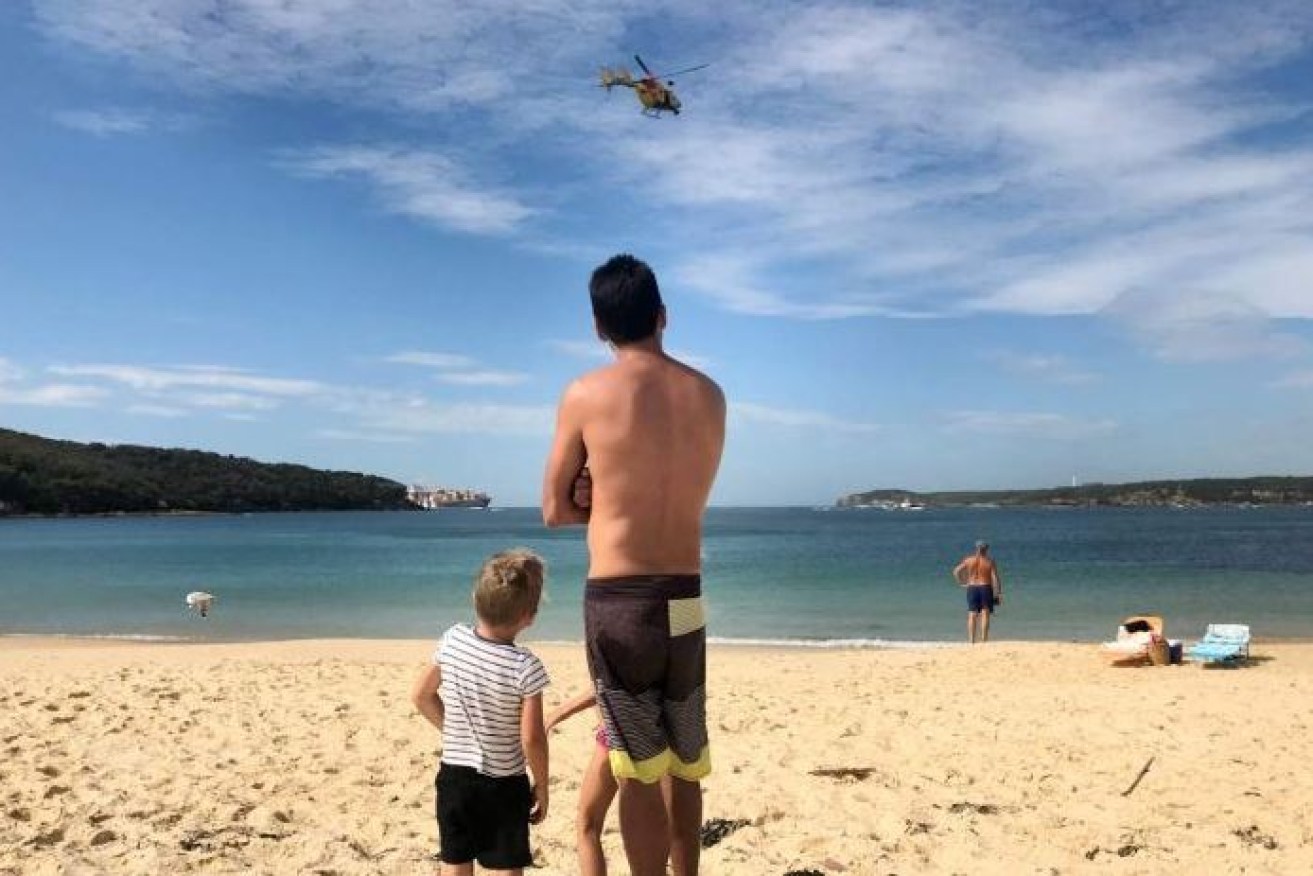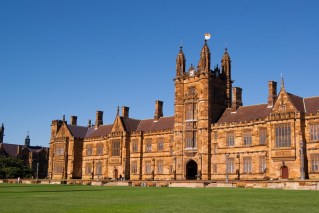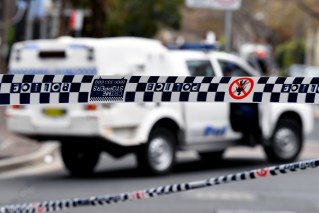Swimmers hit the water again after Botany Bay shark attack

Banned from the water after the shark attack, would-be swimmers watch a chopper search for the marine predator.
Botany Bay beaches that were closed after a woman was bitten by what experts suspect was a juvenile great white shark have reopened.
Randwick City Council on Sunday morning reopened Little Congwong, Congwong, Frenchmans and Yarra beaches at La Perouse following the shark attack on Friday evening.
The beaches were closed on Saturday as lifeguards, lifesavers and the Westpac rescue helicopter monitored the waters of Botany Bay.
“There have been no further sightings of the shark,” a council spokesperson said in a statement on Sunday morning when announcing the four beaches had reopened.
Anna Shurapey survived the first shark attack in Botany Bay in at least 25 years after she was bitten on the leg about 7pm on Friday.
The 55-year-old, who had been swimming off Little Congwong Beach, was taken to St George Hospital with deep cuts to her lower leg.
A Department of Primary Industries biologist has suggested Ms Shurapey was bitten by a juvenile great white of between 2.7 and 3.2 metres in length.
University of Sydney shark researcher Christopher Neff agrees her injuries suggest a juvenile was to blame.
“Juvenile sharks generally don’t know what they’re doing,” he told AAP.
“It’s a ‘curiosity injury’ rather than anything else.”
Dr Neff says beachgoers shouldn’t be worried about a repeat attack because sharks move between 50 and 100 kilometres a day.
“They don’t stay in the same area – that’s a myth,” Dr Neff said on Saturday.
“There’s no real science behind looking for the shark. That’s more to ease public fear and to make people comfortable going back in the water.”

Experts say juvenile sharks, like the suspected great white believed responsible for the attack, don’t linger and “don’t know what they’re doing”. Getty
The expert also rejected calls for shark nets to be deployed in Botany Bay, saying there was no data to back up their effectiveness.
Dr Neff said swimming at dawn and dusk could be hazardous because people were often alone at that time.
He said water temperatures below 20C could lead to an increase in white shark activity, as could a new moon.
“Sharks come in closer to shore (then) … you just want to be mindful,” he advised.








